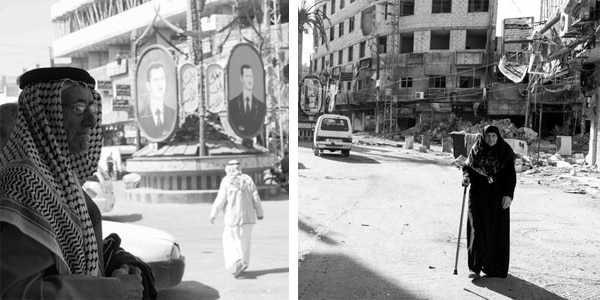
Syria: 320,000 dead (11,500 of them children) up to June and 4,088,099 refugees since 2011, and yet more to come. So, far from being resolved, the three-way civil war has become increasingly complicated. Neither Arabs nor Westerners, nor anyone else for that matter, have a clear strategy. Why?
The international context is unfavourable, except to the extent that the nuclear deal with Iran might make Tehran more flexible. It might even possibly be willing to drop its ally, President Bashar al-Assad, although it is unlikely to jettison the regime itself: a minority Shia dictatorship wary of change that rules over a Sunni majority.
In order to neutralise the Sunni uprising against his regime, Syria’s al-Assad opened the doors to the self-styled Islamic State, Daesh. This radical Sunni movement that grew out of the ruins of the war in Iraq has taken advantage of the situation to occupy land, mainly in Sunni areas, thus leading to a de facto partition of Syria. The West’s mistake was to fail to support at the right time the moderate rebels that were able to stop Daesh in Aleppo and elsewhere, fearing infiltration by al-Qaeda and other elements that were also present. Building on the fear of Daesh, al-Assad’s hand has been strengthened both domestically and internationally.
Russia, in a state of tension with the US over the Ukraine, is strengthening its military presence and its support for al-Assad and blocking any Security Council resolutions that would involve the use of force. Despite this, the situation is escalating. Paris and London, under pressure from the refugee issue, are now hinting, along with Australia, that they might step up their military involvement against Daesh in Syria (as they are doing in Iraq). The killing by British drones of two British Jihadists in Syria (where the UK is not at war, as it is in Iraq) has caused controversy. And London wants to exert diplomatic pressure on al-Assad while Paris, for now, is just contemporising, as it believes that, if not in the long run, at the least in the shorter term Syria’s President must be part of the solution.
The bombings by the US and its allies against Daesh in Syria (in addition to Iraq) are just not enough. It is ‘boots on the ground’ that are needed. The West neither wants to put them there and nor can it, while the region’s Arab regimes involved in the international coalition against Daesh (Bahrain, Jordan, Qatar, Saudi Arabia and the UAE) can do so but do not want to. Nor are they willing to let Iran sit in on any talks on Syria in Switzerland, which would be advisable. However, the geopolitical and religious rivalry between Saudi Arabia and Iran are an impediment.
A further factor must be added: Turkey. The Ankara government has finally become involved in the war against Daesh, but is taking the opportunity to further punish the Kurds (who themselves are quite effectively facing up to the self-styled Islamic State) and thereby win votes.
It is not that all options are equally bad, but that so far there are no real options, not even opening up safe areas to protect refugees with an international air force. Meanwhile, caution is called for, as the West seems to have a knack for creating new and serious problems while trying to solve others. But much more can and should be done to help displaced persons and internal and external refugees. So more suffering is in the offing. My apologies for the simplification but it might help us not to lose our way.


